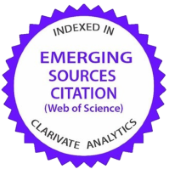Can Virtual Reality Become an Instrument in Favor of Territory Economy and Sustainability?
DOI:
https://doi.org/10.29036/jots.v14i26.470Keywords:
Economy, Ecotourism, Land management, National park, Virtual realityAbstract
The study aims to identify how virtual reality technology can help protect and conserve flora and fauna in national parks and other environmental settings. To this end, the literature published in the Scopus database is examined. A Systematic Literature Review methodology from 2018 to 2022 and an Empirical Research (survey) applied to tourism in natural areas, mainly national parks, have been proposed. Virtual reality technology is particularly useful as a complement or alternative to visiting national parks. The main results indicate that, currently, daily life confronts us with stressful situations that can be mitigated through ecotourism, as well as virtual reality applications, such as games and videos, which interactively inform about the species of flora and fauna present in the park visited. This helps in the conservation and protection of endangered species, the conservation of the forest, as well as archaeological heritage sites present in these natural parks. The development and implementation of this technology varies from one context to another. It is beneficial for people with some kind of disability or for the physical effort involved in long walks, even on steep terrain, and sometimes it improves the conditions of access to the national park and the dangers related to such an exciting adventure.
Downloads
Downloads
Published
Issue
Section
License
Copyright (c) 2023 Journal of Tourism and Services

This work is licensed under a Creative Commons Attribution-NonCommercial-NoDerivatives 4.0 International License.
Journal of Tourism and Services (ISSN 1804-5650) is published by the Center for International Scientific Research of VŠO and VŠPP in cooperation with the following partners:
- Juraj Dobrila University of Pula, Faculty of Economics and Tourism, Croatia
- School of Business and Administration of the Polytechnic Institute of Setúbal, Portugal
- Szent István University, Faculty of Economics and Social Sciences, Hungary
- Pan-European University, Faculty of Business, Prague, Czech Republic
- Pan-European University, Faculty of Entrepreneurship and Law, Prague, Czech Republic
- University of Debrecen Faculty of Economics and Business, Hungary
- University of Zilina, Faculty of Operation and Economics of Transport and Communications, Slovakia
The publisher provides a free access policy to the Journal of Tourism and Services.





